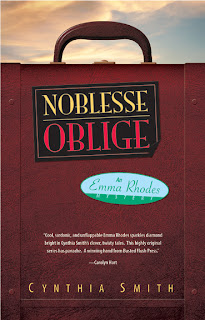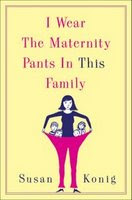My Write of Passage

Cynthia Smith, author of Noblesse Oblige, is our guest blogger today.
Deep in the being of every non-fiction writer lies the longing to be a novelist.
So after seven non-fiction books that did fairly well (which means if I depended upon royalties alone to make a living I’d be flipping burgers at McDonald’s) – I decided to write fiction. Since I have long been a mystery book addict (I read 3 a week. My library charges after 7 days so I have to read fast) I decided to write a mystery. Heeding the lore that one should write about what one knows, I had 3 protagonists: me, my best friend in college and her 70-year-old Jewish grandmother who solved the mystery like a Yiddish Miss Marple. I sent the manuscript to an agent who read it over a weekend and phoned me on Monday to say “I loved it but I’ll never be able to sell it.” Why? “Because all the editors are 12-years-old and will never identify with your characters. You need a contemporary voice.”
Fast forward to my visit to London sitting on a train to Salisbury, seated alone in a compartment with an upper class young woman who wasted her window-seat position that I coveted as she wrote feverishly in a legal pad. “I’m on my way to see my solicitor because I’m getting divorced and he told me to write down what I want from my bastard of a husband.” Who asked her? But I find people tell me things. Perhaps because my simpatica look indicates I can help them. And I do. And did. That’s where I got the idea to create a protagonist who is a sort of private eye but more – she is a Private Resolver. Her name is Emma Rhodes.
Unlike the current female private eyes who live on takeout and cut their own hair with cuticle scissors, Emma is RICH: she dresses in designer clothes, has 3 homes all over the world because she demands $20,000 for two weeks work with a guarantee of success.
She is everything I would have loved to be at her age: gorgeous, an IQ of 165, sexually free, wealthy and above all a size 8. I starred her in three novellas and gave it to my agent from whom I received a phone call weeks later.
“Berkley Crime division of Penguin Putnam is interested. But there’s a small problem.” Oi veh, they probably want me to turn her into a transvestite. “She asked if you could extend them into three full-length novels.” My one-word-answer was “When?” And so I got a three-book contract, later extended to five-books.
The fun was creating the supporting cast – necessary in a series. Abba Levitar, a colonel in the Israeli Mossad intelligence agency who was Emma’s best friend and helper, and lover Superintendent Caleb Franklin of Scotland Yard, a gorgeous Cambridge-educated black man who I modeled after the hunk who bedded Jane Tennant in PRIME SUSPECT. Abba became my outlet for profanity since my agent told me foul language would not suit ladylike Emma. Where do I get Israeli curses? I don’t use the Internet for research; I like to network until I find a live source. I found a visiting Israeli rabbi and told him I’m a writer who needed Israeli curse words. It’s amazing how the word “writer” opens doors and mouths. “Kuze mach.” He replied instantly. “I wrote diligently. “What does that mean?” I asked. “It means the pussy of your mother.” I nearly fell off the chair. “Is that Hebrew?” I asked. ”No – of course not. It’s Arabic. We do not curse in Hebrew – that is the language of the Bible!”
Cynthia Smith
Author of NOBLESSE OBLIGE
Published by Busted Flush Press
Available from the following bookstores:
Murder on the Beach, Delray Beach Florida
Murder By The Book, Houston, Texas
The book will also be available though other online, chain and independent booksellers.





